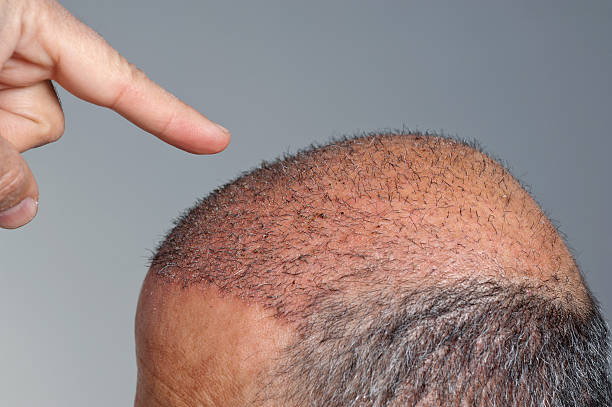Nurturing Mental Health in a Fast-Paced World
In today's rapidly evolving society, mental health has become a critical concern for individuals across all age groups and backgrounds. The constant barrage of information, social media pressures, and demanding work environments have contributed to a surge in stress-related disorders, anxiety, and depression. As our understanding of mental health expands, so does the urgency to address these issues effectively. This article delves into the complexities of maintaining mental wellbeing in a world that often seems designed to challenge it. We'll explore current trends, innovative approaches, and practical strategies that can help individuals navigate the turbulent waters of modern life while preserving their psychological health.

The Impact of Digital Technology on Mental Wellbeing
While technological advancements have brought unprecedented convenience and connectivity to our lives, they have also introduced new challenges to mental health. The constant connectivity enabled by smartphones and social media platforms has blurred the lines between work and personal time, leading to increased stress levels and difficulties in maintaining a healthy work-life balance. Moreover, the curated nature of social media content can foster feelings of inadequacy and social comparison, potentially exacerbating anxiety and depression in vulnerable individuals.
The Role of Sleep in Mental Health
Sleep plays a crucial role in maintaining mental health, yet it is often overlooked in discussions about wellbeing. Chronic sleep deprivation has been linked to an increased risk of developing mental health disorders, including depression and anxiety. Conversely, individuals with existing mental health conditions often experience sleep disturbances, creating a vicious cycle that can be challenging to break. Understanding the bidirectional relationship between sleep and mental health is essential for developing effective treatment strategies and preventive measures.
Mindfulness and Meditation: Ancient Practices for Modern Times
In recent years, mindfulness and meditation have gained significant traction as tools for improving mental health. These practices, rooted in ancient traditions, have been adapted and scientifically studied for their potential benefits in managing stress, anxiety, and depression. Research has shown that regular mindfulness practice can lead to structural changes in the brain associated with improved emotional regulation and reduced reactivity to stress. As a result, many mental health professionals now incorporate mindfulness-based interventions into their treatment approaches.
The Gut-Brain Connection: Nutrition and Mental Health
Emerging research has shed light on the intricate relationship between gut health and mental wellbeing, often referred to as the gut-brain axis. The gut microbiome, composed of trillions of microorganisms, plays a crucial role in producing neurotransmitters that influence mood and cognitive function. Studies have shown that dietary changes can significantly impact mental health outcomes, with certain nutrients and probiotics demonstrating potential in alleviating symptoms of depression and anxiety. This growing body of evidence underscores the importance of a holistic approach to mental health that includes nutritional considerations.
The Power of Social Connections in Mental Wellbeing
Human beings are inherently social creatures, and the quality of our relationships has a profound impact on our mental health. Strong social connections have been consistently linked to better mental health outcomes, including reduced risk of depression and anxiety. However, the nature of social interactions has evolved in the digital age, with online relationships sometimes replacing face-to-face interactions. Understanding how to foster meaningful connections in both physical and digital spaces is crucial for maintaining mental wellbeing in the modern world.
Innovative Approaches to Mental Health Treatment
The field of mental health treatment is constantly evolving, with new approaches and technologies emerging to complement traditional therapies. Virtual reality (VR) therapy has shown promise in treating anxiety disorders by allowing patients to confront their fears in a controlled, immersive environment. Additionally, artificial intelligence-powered chatbots are being developed to provide accessible, round-the-clock support for individuals struggling with mental health issues. While these innovative approaches offer exciting possibilities, it’s important to consider their limitations and potential ethical implications.
The Workplace Mental Health Revolution
As awareness of mental health issues grows, many organizations are recognizing the importance of prioritizing employee wellbeing. Forward-thinking companies are implementing mental health programs, offering flexible work arrangements, and fostering a culture that destigmatizes mental health discussions. These initiatives not only benefit individual employees but also contribute to improved productivity and reduced absenteeism. The shift towards prioritizing workplace mental health represents a significant step forward in addressing the broader societal impact of mental health challenges.
Building Resilience: A Key to Long-term Mental Wellbeing
Resilience, the ability to adapt and bounce back from adversity, is increasingly recognized as a crucial factor in maintaining long-term mental health. While some individuals may have a natural predisposition towards resilience, it is a skill that can be cultivated and strengthened over time. Techniques such as cognitive reframing, developing a growth mindset, and practicing self-compassion can help build resilience and equip individuals with the tools to navigate life’s challenges more effectively.
In conclusion, the landscape of mental health is complex and ever-changing, influenced by a myriad of factors ranging from individual biology to societal pressures. As we continue to grapple with the challenges of maintaining mental wellbeing in a fast-paced world, it’s clear that a multifaceted approach is necessary. By combining traditional therapies with innovative technologies, fostering strong social connections, and prioritizing self-care practices, we can work towards a future where mental health is valued and nurtured as an essential component of overall wellbeing. The journey towards better mental health is ongoing, but with increased awareness and collective effort, we can create a society that supports and promotes psychological resilience for all.






